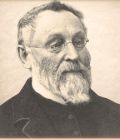COMMON NAME:
SNOW ROSE.
Symptoms
Especially suitable for nervous persons who dread a stram and are particularly afraid of thunder (A.).
Sensation of formication in the limbs (Agaricus, Camph., Ignatia, Lycopodium, Nux vomica, Acid phosphoricum., Phosphorus, Pulsatilla, Rhus toxicodendron, Secale, tarent., Zincum met.).
During rest weakness and loss of power in the limbs.
THE PAINS ARE CAUSED AND ARE AGGRAVATED BY WET COLD WEATHER AND DURING A THUNDER-STORM.
During rest the pains are most violent.
Violent rheumatic tearing in the limbs, as if in the periosteum (Phytolacca).
Rheumatism worse from rest and change of weather (D.).
Rheumatism of the small joints (Act-S.) (D.).
Rheumatism gout (Benz-Ac., Calcarea phos.) (D.).
Arthritic nodes (CAust., Lycopodium, Mezer.,) (G.).
Tearing jerking faceache or toothache; better from food or warmth (B.).
Drawing pain in the joints, as if they were dislocated, with gouty nodosities and swelling.
Inferior and superior dental neuralgia of an agonizing character, with a marked tendency to retraction of the gums in all cases.
Very curative in severe neuralgic pains of an alarming character.
Toothache, which ceases suddenly, beginning again in two or three hours (G.P).
Toothache, every spring and fall during sharp east winds; worse from change of weather, thunderstorm and windy weather (A.).
Sweat, with formication (N.).
Pressing in the stomach from drinking cold water.
Stitches in the spleen from fast walking (Arnica, China, Hepar, Lachesis, Natrum carbonicum, Natrum muriaticum, Selenium, Veratrum).
Itchy, sweaty, wrinkled scrotum (B.).
Hydrocele of boys (Abrotanum, Calcarea, Pulsatilla, Silicea) (B.).
Hard, indurated testicle, with tendency to atrophy and a sensation as if it were crushed (D.).
Drawing in spermatic cord, extending to abdomen and thigh (D.).
INDURATION OR SWELLING OF THE TESTICLES, PARTICULARLY OF THE RIGHT ONE (G.).
TESTICLES, ESPECIALLY EPIDIDYMIS, INTENSELY PAINFUL TO TOUCH, DRAWN UP, SWOLLEN AND PAINFUL (N.).
Induration and swelling of the testicle after gonorrhoea (Clem., Pulsatilla) (A.).
Drawing and tearing in the limbs, especially the periosteum, and forearms, and legs; worse in wet weather, or before a storm, and at rest (N.).
Menses with fever (Belladonna, Graphites, Phosphorus, Sepia) (B.).
Diarrhoea from eating fruit (Arsenicum, Bryonia, China, Coloc., Nat-S., Pulsatilla, (Veratrum), and from wet, cold weather (Calcarea, Dulcamara, Natrum sulphuricum, Acid nitricum, Nux vomica, Polyg., Rhus toxicodendron).
Burning pain and on reading or writing heat in the eyes (R.).
Ears: Pain in the outer ear nearly all day; humming, buzzing; ringing; sensation as if water were rushing into them; loud sounds re-echo for a long time (R.).
Confused and stupid; forgets his subject (Bar-C.) (B.).
Nostrils obstructed alternately (Lac-C.) (B.).
Scraping and scratching sensation in the throat, as if lined with mucus (C.).
Acute inflammatory swelling of the joints, wandering from one joint to another; severe at night; worse in rest and during rough stormy weather (Kalm.). (A.).
Rheumatic drawing, tearing pains in all the limbs, worse at rest and in wet, cold, windy weather (Rhus toxicodendron) (A.).
Rheumatic headache involving the forehead and temples always aggravated by cold, wet weather (Kali carb.) and wine, and ameliorated by wrapping the head up warm (Silicea) (R.).
Symptoms reappear with rough weather (A.).
Stiffness of the nape of the neck in the morning in be and after rising, with rheumatic pains (R.).
Cannot get asleep, or remain asleep unless legs are crossed (A.).
Urine somewhat increased, pale and of offensive, acrid odour (C.).
Breathless and speechless from violent pleuritic pains running down the anterior chest (B.).
Pain in the back when sitting, better from motion, worse from stooping (B.).
Diarrhoea in damp weather; food passed undigested (R.).
AGGRAVATION :
On beginning to move; in stormy, windy weather; from electrical changes in the atmosphere; on approach of thunder-storm; during night; from rest; and from wine.
AMELIORATION :
From wrapping the head warmly; from exercise; from dry heat; from motion; and in the sun.
RELATIONSHIP:
ANTIDOTES: Bryonia, Camph., Clem., and Rhus toxicodendron
Compare : Apis., Bryonia, Conium, Digitalis, Dulcamara, Ferr-P., Gelsemium, Ledum, Lycopodium, Mercurius, Nat-S., Pulsatilla; Rhus toxicodendron, Silicea, Sulphur and Thuja

